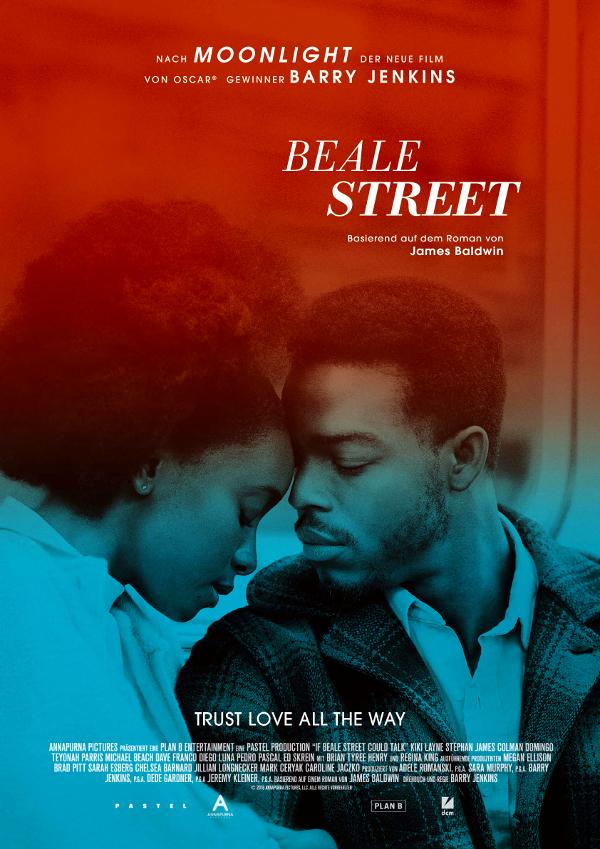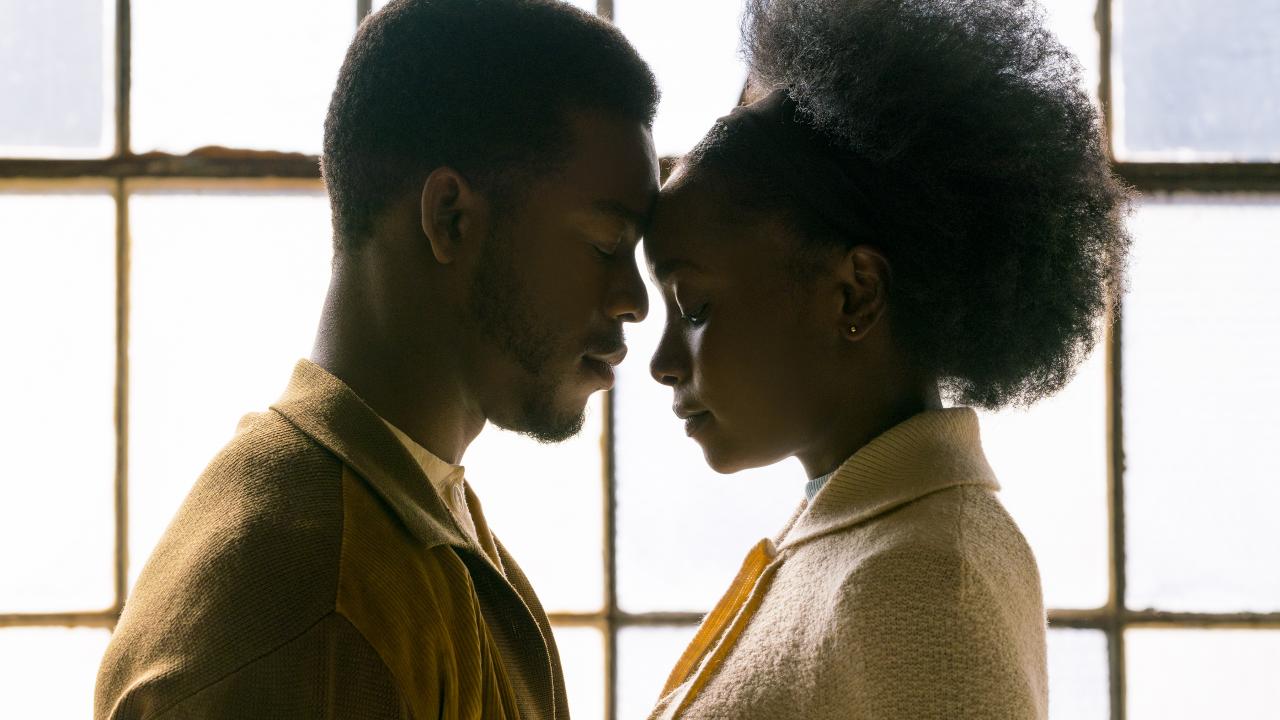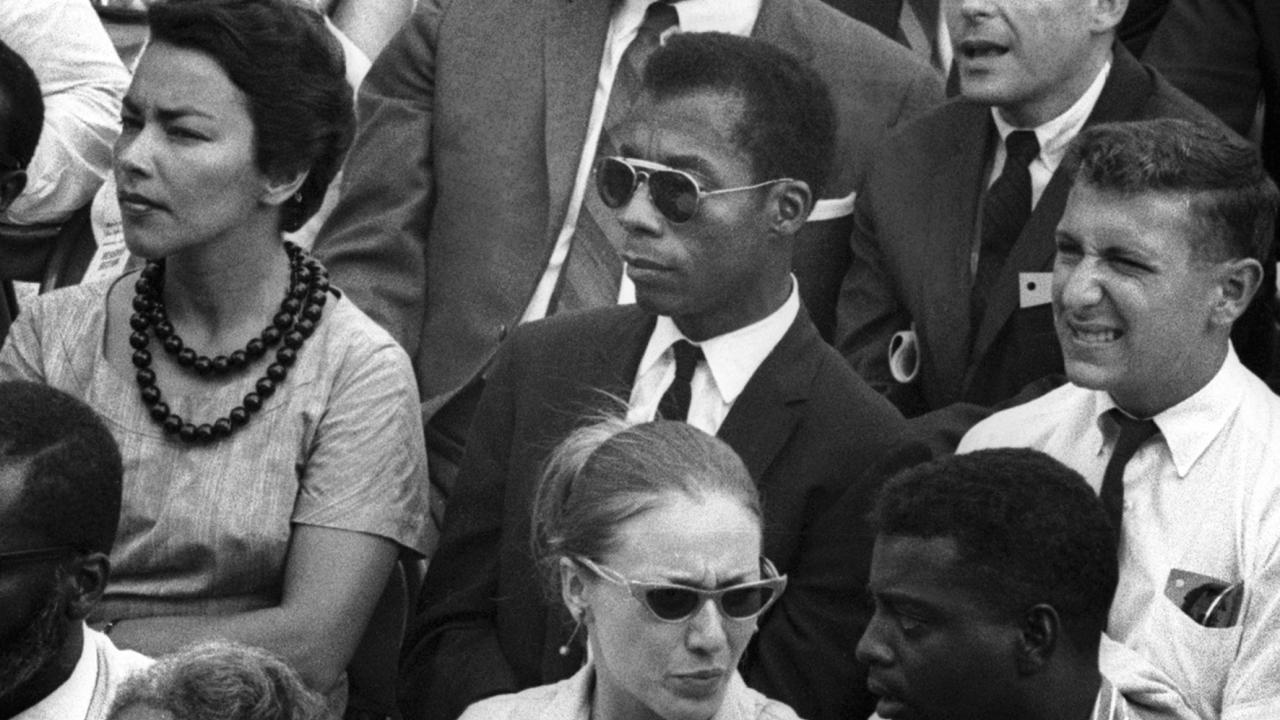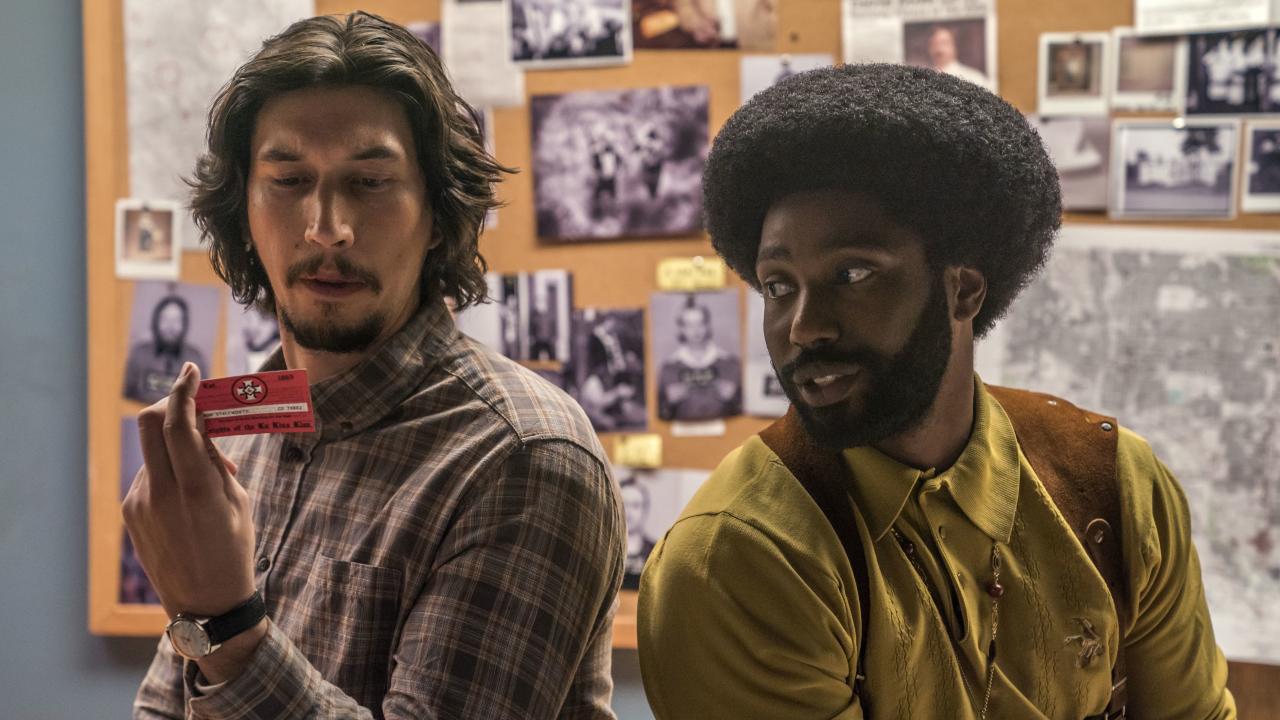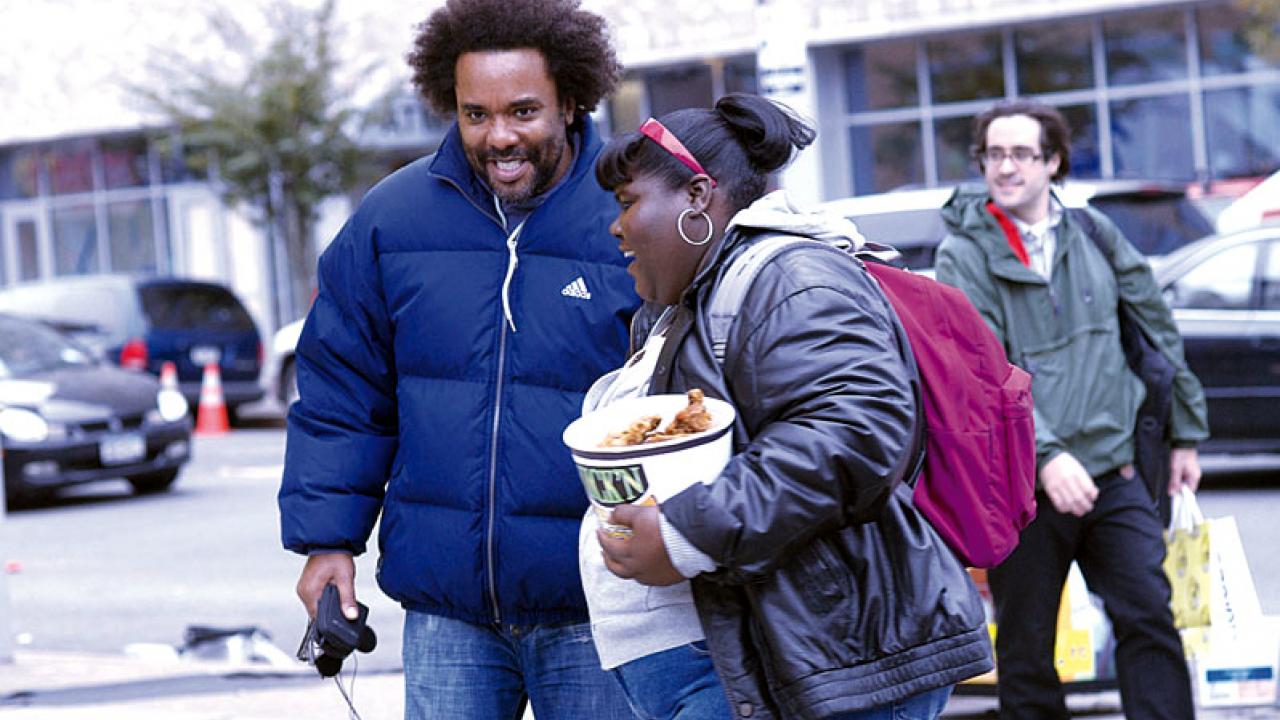Kategorie: Filmbesprechung auf englisch
"If Beale Street Could Talk"
New York, early 1970s: Tish and Fonny are a young couple from Harlem. When Fonny is wrongly indicted, their common future seems to be in danger. "If Beale Street Could Talk" tells a story about the African-American experience.

Unterrichtsfächer
Thema
They walk slowly through the streets of Harlem, side by side, hand in hand. They appear to float together, as if weightless. The world around them disappears and they are the only two left in it: Tish and Fonny.
This scene of a floating couple that communicates largely by sight and touch runs through Barry Jenkins' "If Beale Street Could Talk" like a refrain. These are images of an intimate bond – "I hope that nobody has ever had to look at anybody they love through glass," says Tish off-cameraat the beginning of the movie. But soon, the security glass in the visitors' area of a prison separates the 22-year-old sculptor Fonny (Stephan James) and 19-year-old sales assistant Tish (KiKi Layne).
An African-American Experience
"Beale Street is a street in New Orleans, where my father, where Louis Armstrong and the jazz were born. Every black person born in America was born on Beale Street, born in the Black neighborhood of some American city [...]. Beale Street is our legacy." This is what the American writer James Baldwin wrote in a private note about the title of his 1974 novel If Beale Street Could Talk. The quote is used as a foreword to the new German translation entitled Beale Street Blues (2018). Barry Jenkins, too, leads his Zum Inhalt: film adaptation with the same quote, which articulates an African-American experience. For Baldwin, the street is an allegory and not a concrete location. For indeed, Beale Street is a street in Memphis, Tennessee, located in an African-American district and described in the blues song "Beale Street Blues" by W. C. Handy.
"If Beale Street Could Talk" is the story of Tish and Fonny, friends and confidants since childhood who have become a couple in their early adulthood. It is the early 1970s and they are looking forward, full of hope, and expectation, to a future together – until Fonny is wrongly charged with rape due to the arbitrary actions of a white police officer. Tish, who is pregnant, has to raise the child herself and her fiancé is driven to desperation by his incarceration.
Systemic Injustice to This Day
Barry Jenkins succeeds in the delicate task of narrating an intimate, tender love story and an archetypical drama about structural racism at the same time. For, just like "every black person" is born on Beale Street, Tish und Fonny's story to this day reflects the discrimination and oppression experienced by "every" African-American. Racism has institutional implications, too, not least to be seen in the prison statistics: in 2016, 33 percent of inmates in US prisons were black (the average proportion of inmates in the population is about 12 percent). Baldwin called the American penal system the continuation of slavery by other means – in a letter to the civil rights activist Angela Davis, he spoke of a long history of "chains on black flesh."
Although Jenkins tells the story in a social context, his concrete focus is on interpersonal relations: the love relationship, the family. Tish gets strong support from her mother Sharon, her father Joseph and her older sister Ernestine. They all immediately embrace the unborn child – in contrast to Fonny’s devout mother. She curses the child born out of "sin."
Flashbacks – Ellipses – Time Lapses
Like the novel it is based on, the film adopts Tish's perspective. Her soft off-camera voice leads us through a story full of ellipses and time lapses in which different levels are masterfully interwoven: Tish's prison visit and her family's efforts to secure the release of their loved on with a lawyer and their own investigations, transition loosely into flashbacks. These flashbacks tell of how the couple slowly becomes closer, of the first time they sleep together, of a series of humiliating experiences and their search, ultimately successful, for living quarters. The racist incident that leads to Fonny's arrest is also depicted as a flashback. In these Zum Inhalt: scenes, Jenkins adds contours not just to the love and friendship of the couple, but also to their traditional gender roles. When Tish defends her fiancé against the white police officer, the man and his sense of masculinity are offended – after all, he wants to be the one protecting her! Tish, on the other hand, identifies with the role of mother and housewife, when she tries to picture "her" imaginary kitchen during their search for an apartment.
In "If Beale Street Could Talk" Love is a Means of Survival
Twice in the film, Jenkins depicts a montage of black-and-white photographs of police and judicial brutality. They wake the viewer up to how firmly the story is based on a concrete contemporary-historical reality. However, Jenkins' lyrical style, as it did in his previous film Zum Filmarchiv: "Moonlight" (USA 2016), breaks with the conventions of realism. The dreamlike, at times hypnotic – and powerfully vivid – images, express intimate atmospheres in which the emotions of the protagonists unfold. Time and again, the camera separates the couple from their environment and isolates them in close-ups with an out-of-focus background. The emotional texture of the movie is underscored by the dense soundtrack by composer Nicholas Britell, who fuses strings and brass instruments to create haunting sounds and pulsating crescendos and also adds elements of jazz. The music succeeds in transporting both feelings of ecstasy and melancholy and fear.
In "If Beale Street Could Talk" love is a means of survival that Barry Jenkins salutes and celebrates in all its forms. Why he was willing to rent out the loft to them, the black couple, of all people, Fonny asks the young, Jewish landlord. His simple answer stands for the spirit of the film: "I dig people who love each other."

